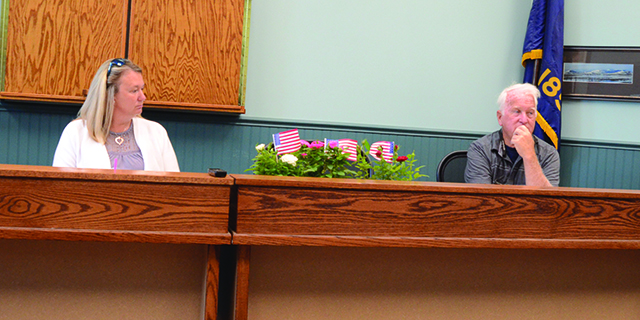Program helps protect the elderly
Published 1:06 pm Tuesday, May 19, 2015
Imagine if you will: Priscilla, an 82-year-old woman, has given financial power of attorney to her granddaughter Connie. Connie has Priscilla’s checkbook and is out paying Priscilla’s bills. While paying Priscilla’s water bill Connie realizes that her water bill is also due so she uses Priscilla’s check to cover both hers and Priscilla’s bill. Connie doesn’t ask Priscilla before paying her bill but figures Priscilla wouldn’t mind.
Or Betty, a 93-year-old woman, employs a caregiver in her home. Betty complains that her caregiver yells in her face and calls her names.
Trending
Or Jim, a 76-year-old man with dementia, resides at a local facility. In visiting with Jim he tells you that he has been in a lot of pain and the facility hasn’t given him any of his pain medication and ignores his requests for them.
These are examples or Financial Exploitation, Verbal Abuse, and Neglect. These are examples of the types of situations to which Adult Protective Services respond. These are examples of the persons that are provided assistance because Title VII of the Older Americans Act of 1965 created state grants for “vulnerable elder rights protection” programs.
The Oregon Department of Human Services, Aging and People with Disabilities program has the responsibility to provide Adult Protective Services (APS) to older adults and to adults with physical disabilities whose situation is within APD’s jurisdiction to investigate.
The intent of the APS Program is to provide protection and intervention for older adults and adults with physical disabilities who are unable to protect themselves from harm and neglect.
Adult Protective Services are available from the Department to any adult resident of a licensed care facility, to nursing facility residents regardless of age, and to any adult residing in the community who meets the eligibility criteria.
Most seniors and adults with disabilities live independently without assistance, however, some face abuse or neglect by others and need trained professionals to advocate on their behalf. When necessary the scope of services provided by APS includes receiving reports of abuse, neglect, or self-neglect; providing and documenting risk assessment of reported victims; conducting and documenting investigations of reported wrongdoing; and providing appropriate resources for victim safety.
Trending
As a human services agency, the Department embraces a social model of intervention with a primary focus on offering safety and protection to the reported victim. The over-arching ethical value in adult protective services is the obligation to balance the duty to protect older adults and adults with physical disabilities with the duty to protect their rights to self-determination.
The Department relies upon other key sources, such as law enforcement, legal, medical, and regulatory professionals, to assist in responding to the overall problems associated with abuse and neglect.
When a concerned citizen contacts APS to report concerns about the welfare of a senior or adult with disabilities, the details provided in the report will be screened by a trained professional to evaluate if it meets the statutory requirements for APS services. If the situation meets criteria for abuse, neglect or exploitation, an APS worker will initiate face-to-face contact with the adult needing assistance. The APS worker will assess the adult’s safety.
Greg Musgrove, the Adult Protective Services supervisor for six eastern Oregon counties, has worked in APS for 14 years and is stationed out of the La Grande DHS office.









